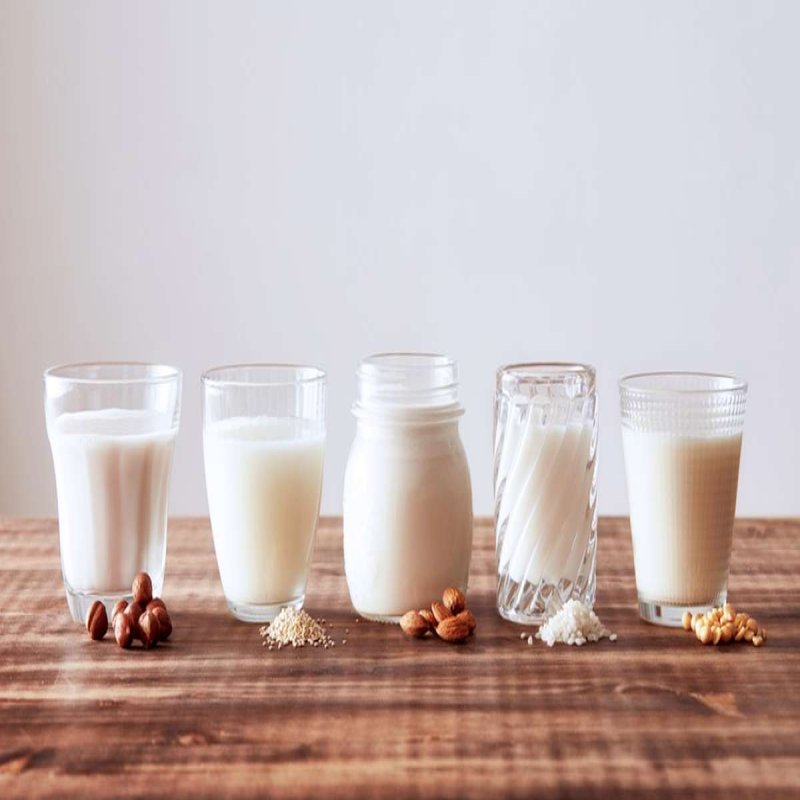
Since our early childhood, we have been told to drink our daily glass of milk; otherwise, we won’t grow up strong enough. But, for me, it was not the same. Due to lactose intolerance, I could barely even eat dairy ice cream, let alone milk. But today’s generation has a lot more at their disposal and has a variety of alternatives to choose from. Whether you’re lactose intolerant, vegan, or just on a low-calorie diet, plant-based milk or non-dairy milk might just be the right choice for you! So, what is non-dairy milk? Are they as healthy and wholesome as dairy milk?
Did you know Asian people are more lactose intolerant compared to others? Around 75% of the population in the world is lactose-intolerant, which means they cannot efficiently digest the sugar “lactose” due to the deficiency of the enzyme lactase. Additionally, according to the World Allergy Organization (WAO), 0.25% to 4.5% of the population suffers from cow’s milk allergies. Hence, there is a growing need for non-dairy milk products. This has also led to the popularity of A2 milk in the past decade as an alternative to regular milk.
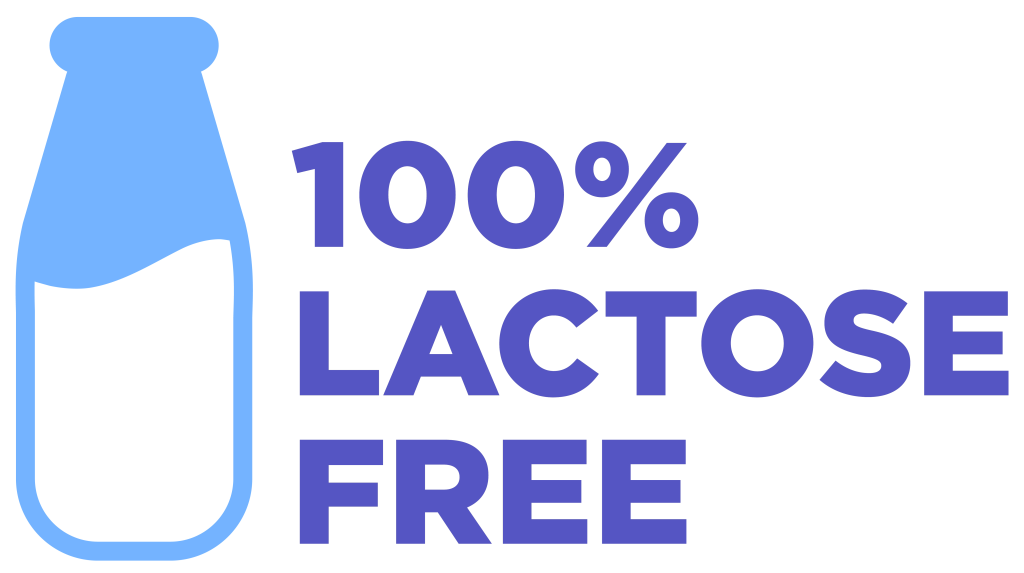
Non-dairy milk products are made from the breakdown of plant products such as cereals, legumes, nuts, and seeds. Some examples include soy milk, coconut milk, hemp milk, oat milk, almond milk, and rice milk. Due to the growing popularity of vegan diets, along with milk allergies and lactose intolerance arising from the consumption of cow’s milk, there has been an increased demand for plant-based alternative milk around the world.
The 4 Most Popular Non-Dairy Milk
Soy Milk
We have been consuming soy milk for a long time, approximately 2000 years ago in China. It was one of the first plant-based milk to be consumed as a substitute for dairy milk for people with lactose intolerance or milk allergies. It is a good source of essential monounsaturated and polyunsaturated fatty acids, which are good for cardiovascular health. The preparation of soy milk involves the soaking and grinding of soybeans.
It contains isoflavones, which are well known for their protective effects against cancer, cardiovascular disease, and osteoporosis. Soy milk has the highest protein content compared to other plant-based milk. A 200-gram serving of soy milk provides approximately 8 grams of protein. Soy milk, fortified with calcium and vitamins, provides you with wholesome nutrition with zero cholesterol.
Coconut Milk
Coconut milk is an important part of Southeast Asian cuisine and is one of the best non-dairy milks. It is not only popular as a beverage but is also widely used as an ingredient in different sweet and savory recipes. Coconut milk is rich in vitamins and minerals such as iron, calcium, potassium, magnesium, and zinc. Coconut milk has an array of health benefits, such as being anti-carcinogenic, anti-microbial, anti-bacterial, and anti-viral. It is also a rich source of fiber but has a high saturated fat content.

Coconut milk contains a saturated fat called lauric acid, which is also present in mother’s milk. Lauric acid helps boost the immune system and maintain the elasticity of the blood vessels. In spite of all the health benefits, you should limit your coconut milk consumption, as excessive consumption can raise your blood cholesterol levels due to its high fat content.
Almond Milk
We all know nuts are healthy for us, with almonds being one of the most popular nut choices. It is a nutrient-dense product and is an excellent source of vitamin E in the form of alpha-tocopherol and manganese. Compared to other plant-based milks, almond milk is naturally a good source of vitamins, especially vitamin E. Our body cannot synthesize vitamin E, so it should be present in the food we eat. It is one of the most nutritious non-dairy milks.
/almond-milk-680287428-5ac11adfc67335003798629d.jpg)
Almonds are a rich source of other nutrients such as calcium, magnesium, selenium, potassium, zinc, phosphorus, and copper. It is low in calories and rich in monounsaturated fatty acids. Getting more of these healthy fats may be beneficial for weight management. They also help reduce LDL, or bad cholesterol, in the body. However, almond milk is low in protein and carbohydrates, making it less nutritionally balanced than cow’s milk or soy milk.
Rice Milk
Rice milk is mostly made from brown rice. It contains moderate amounts of calcium, phosphorus, and some amounts of vitamin A, vitamin D, and vitamin B12. Compared to cow’s milk, rice milk contains more carbohydrates but does not have significant amounts of protein or calcium. It has zero cholesterol, no lactose, and a low saturated fat content. Thus, one should not use rice milk as an alternative to cow’s milk, especially in the case of infants. The sweet-tasting rice milk can serve as an alternative for people with allergies to soybeans and almonds, but it’s high in calories and relatively low in beneficial nutrients.
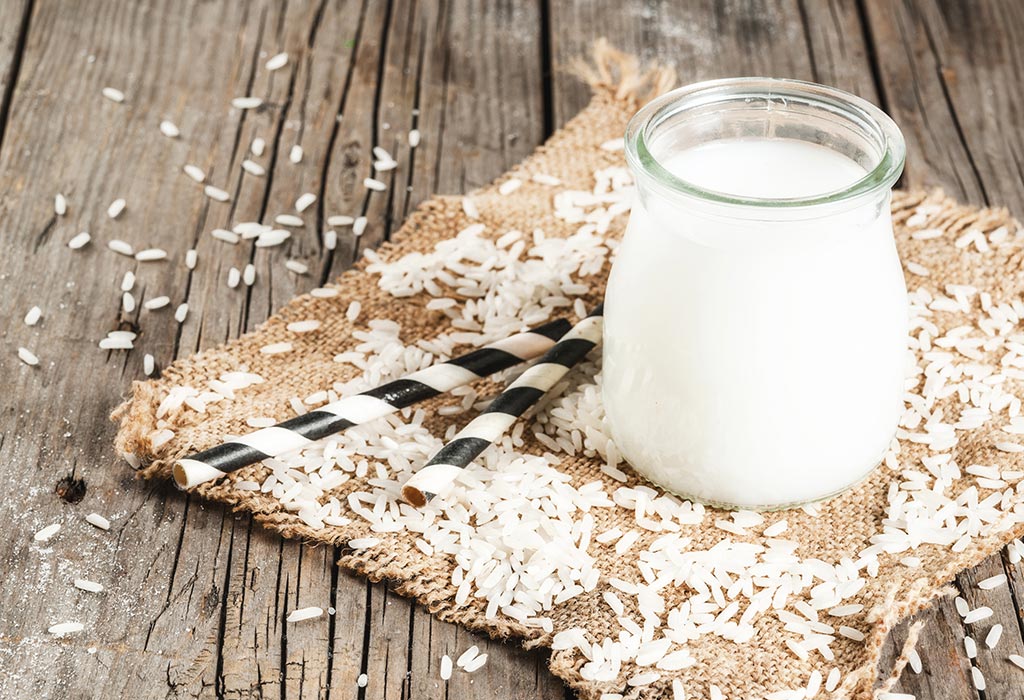
However, these non-dairy milk products are often advertised as wholesome and healthy alternatives to cow’s milk. But that is not entirely true. These non-dairy milk options don’t always have the same naturally occurring nutrients as real dairy milk. Plant-based milk contains many added ingredients, like sugars, stabilizers, salt, and emulsifiers. They are also often fortified to increase their nutritional profile.
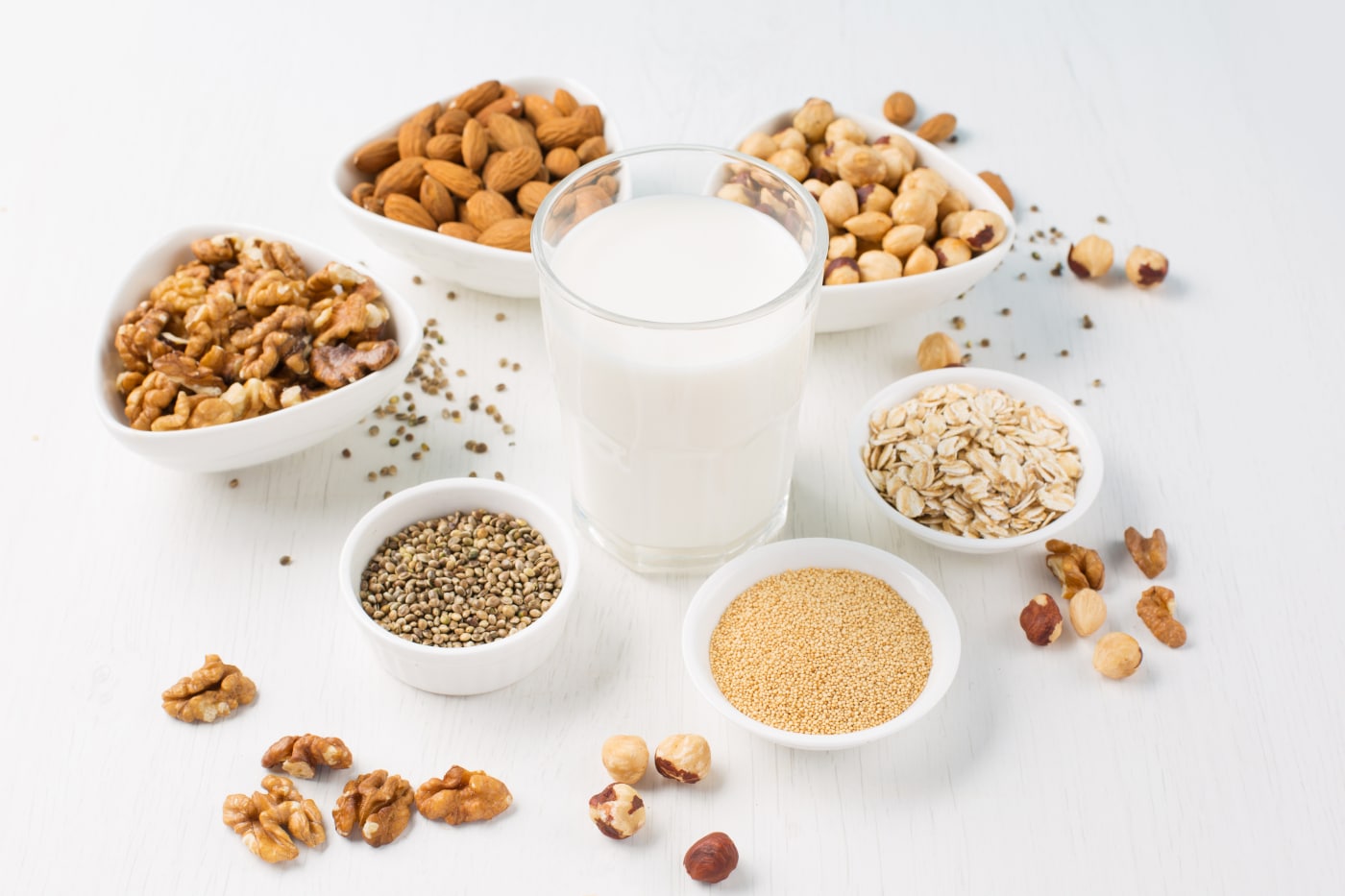
On the contrary, swapping out a few tablespoons of milk for your coffee and tea with non-dairy milk won’t make much of a difference in your overall nutrition. It is also the best choice for vegans and people suffering from lactose intolerance and cow’s milk allergies. We hope that this article can help you make a more informed decision the next time you go grocery shopping. Do you prefer non-dairy milk or dairy milk? Let us know in the comments.

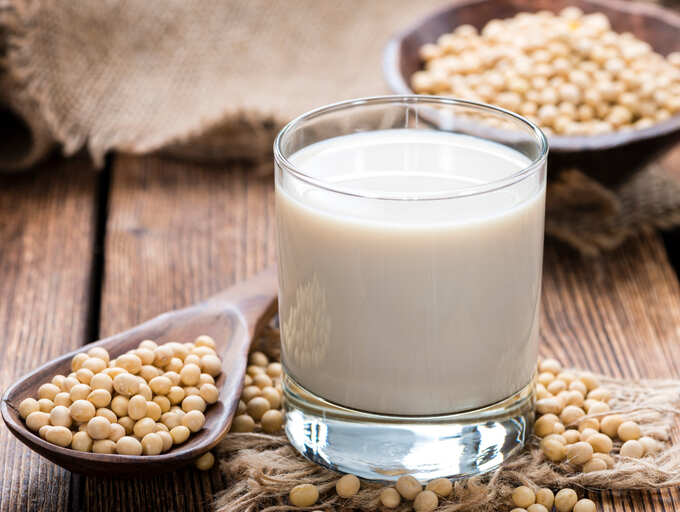

.png)


